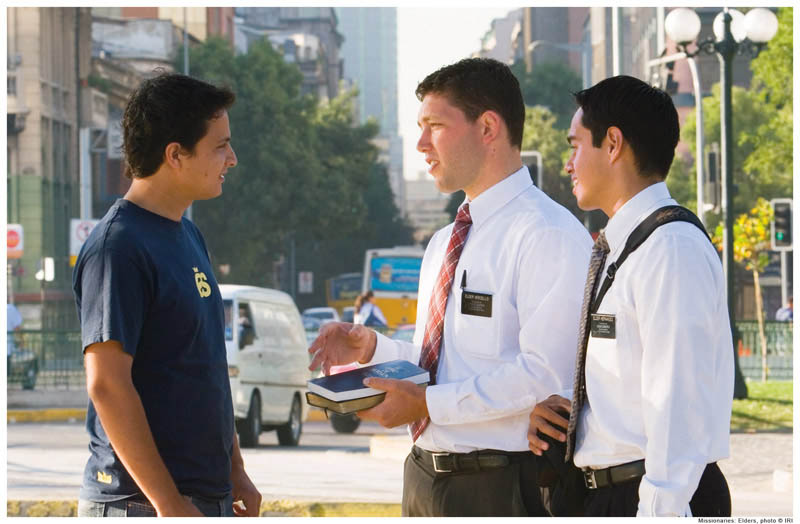In the early days of Christ’s ministry, the gospel was only preached to Jews. Jews and Gentiles did not generally like each other and it was, in fact, illegal for them to spend time together. Jesus said the gospel was to go out to all men, but the apostles didn’t entirely understand that and they continued, even after Jesus’ death, to preach only to the Jews.
 God decided to put a stop to this problem and the Bible tells us a fascinating and enlightening story about how it happened. He set in motion two sets of events in two different places. First, he went to a man named Cornelius. Cornelius was a Gentle, but he was much loved even by the Jews. He was very spiritual and very kind, known for his work in caring for the poor. God sent an angel to tell Cornelius to send three men to Peter, who had been Jesus’ apostle. They were to invite Peter to come to teach them. The angel told Cornelius God knew of Cornelius’ goodness and that God wanted him to hear Peter’s message.
God decided to put a stop to this problem and the Bible tells us a fascinating and enlightening story about how it happened. He set in motion two sets of events in two different places. First, he went to a man named Cornelius. Cornelius was a Gentle, but he was much loved even by the Jews. He was very spiritual and very kind, known for his work in caring for the poor. God sent an angel to tell Cornelius to send three men to Peter, who had been Jesus’ apostle. They were to invite Peter to come to teach them. The angel told Cornelius God knew of Cornelius’ goodness and that God wanted him to hear Peter’s message.
Next, God inspired Peter to go onto the rooftop of the home he was visiting. While Peter waited for dinner he decided to pray. During the prayer he received a vision in which a sheet was lowered that contained a variety of animals to eat. Peter was very hungry, but these were all animals declared unclean by the law of Moses. Peter faithfully kept the Law of Moses and so, when invited to eat, he refused, saying he did not eat unclean and common things. The Lord told Peter, ““What God hath cleansed, that call not thou common.”
Peter was baffled as to what the vision was supposed to mean. Then the three men from Cornelius’ home arrived and delivered their message. Peter went with them to Cornelius, who was so excited at this visit he had gathered all his friends and family to listen to whatever Peter would teach them. When Peter arrived, Cornelius bowed down to him, but Peter instructed him to rise, saying he must never worship a mere man. Peter asked why Cornelius wished to see him and the Gentile explained about the angel’s visit.
Suddenly Peter understood the meaning of the vision he had seen. It wasn’t about food; it was about how God viewed all His children, not just a chosen few. He understood that God wanted the gospel to be preached to the entire world, not just the Jews, and that all people were deserving of respect. ““Ye know how that it is an unlawful thing for a man that is a Jew to keep company, or come unto one of another nation; but God hath shewed me that I should not call any man common or unclean.” Later, Peter declared, “Of a truth I perceive that God is no respecter of persons.”
This story reminds us we are all God’s children and all are loved. It doesn’t matter what country we live in, what race we are, what gender we are. He loves us and He has plans for each of us.
When Joseph Smith, the first prophet of The Church of Jesus Christ of Latter-day Saints (the true name of the church Mormons belong to), ran for president of the United States, he ran on a controversial anti-slavery platform. He wrote:
“The Declaration of Independence ‘holds these truths to be self-evident, that all men are created equal; that they are endowed by their Creator with certain unalienable rights; that among these are life, liberty, and the pursuit of happiness;’ but at the same time some two or three millions of people are held as slaves for life, because the spirit in them is covered with a darker skin.”
Unlike many churches of the time, Mormons has never had segregated congregations. Black and white church members worshipped together. They never taught that slavery was taught in the Bible and approved of by God, even though that was a common belief among some religions.
This stand would lead to increased persecution when they lived in states where the fate of slavery was being decided. It was feared they would vote as a block against slavery. Joseph was noted for his lack of racism in a time when even those who opposed slavery were often racist. When teenager Jane Manning led a group of free blacks to Nauvoo following her conversion to Mormonism, Joseph Smith’s wife Emma saw the group coming toward her home. They had been directed there upon their arrival in the city where the Mormons lived. She invited them in and, as it was dinner time, Joseph Smith added chairs to the table for the group to join them at their meal, an act largely unheard of in that time. He asked Jane to share the story of their conversions and travel—one in which they had been denied boat passage (probably due to race) and had been arrested on suspicion of being escaped slaves. Joseph invited them to stay with him and his family until they found homes and jobs. All but Jane did find homes and jobs among the other Mormon settlers very quickly. When the Smiths found Jane crying because she had been unsuccessful, they invited her to live with them permanently and gave her employment working for them. When Joseph was killed, Jane moved into the home of Brigham Young, where she and her new husband were both quickly hired. Eventually, she and her husband obtained their own home and when Jane found herself a single parent, she supported herself through self-employment. At Jane’s death, the prophet at that time, Joseph F. Smith personally spoke at her funeral. She had gained great fame for her deep level of service to the church and others, sharing her food and supplies with her friends even when there was barely enough for Jane’s own family.
Joseph Smith called black men to hold the priesthood. During Brigham Young’s time, this was discontinued. However, no written records have been found to explain why the practice was changed. Extensive research into it has revealed the change began with Brigham Young, but does not reveal what was behind it. Mormons believe that God continues to talk with us and to provide prophets to guide us. Important practices and doctrine cannot be changed except through revelation. In the 1970s, Spencer W. Kimball, after long months of pleading with God, finally received the revelation needed to restore the priesthood to all worthy males. While there have always been some, including leaders, who tried to guess why the priesthood exclusion had occurred, these opinions were merely opinions and had no doctrinal or factual basis. Mormons believe that where we have no specific revelation, we are free to use our intellect to make decisions. However, these reasons were never canonized and had no basis in fact.
Recently the church issued a statement concerning this issue that included the following:
The Church unequivocally condemns racism, including any and all past racism by individuals both inside and outside the Church. In 2006, then Church president Gordon B. Hinckley declared that “no man who makes disparaging remarks concerning those of another race can consider himself a true disciple of Christ. Nor can he consider himself to be in harmony with the teachings of the Church. Let us all recognize that each of us is a son or daughter of our Father in Heaven, who loves all of His children.” .” (See Race and the Church: All Are Alike Unto God.)
This has been a long-standing theme among Mormons. Read the 1979 talk by Howard W. Hunter on this subject.
About Terrie Lynn Bittner
The late Terrie Lynn Bittner—beloved wife, mother, grandmother, and friend—was the author of two homeschooling books and numerous articles, including several that appeared in Latter-day Saint magazines. She became a member of the Church at the age of 17 and began sharing her faith online in 1992.







I love the Book of Mormon. Truly a life-changing book.
Thanks for visiting, Sean! And for your witness. Share this with others.